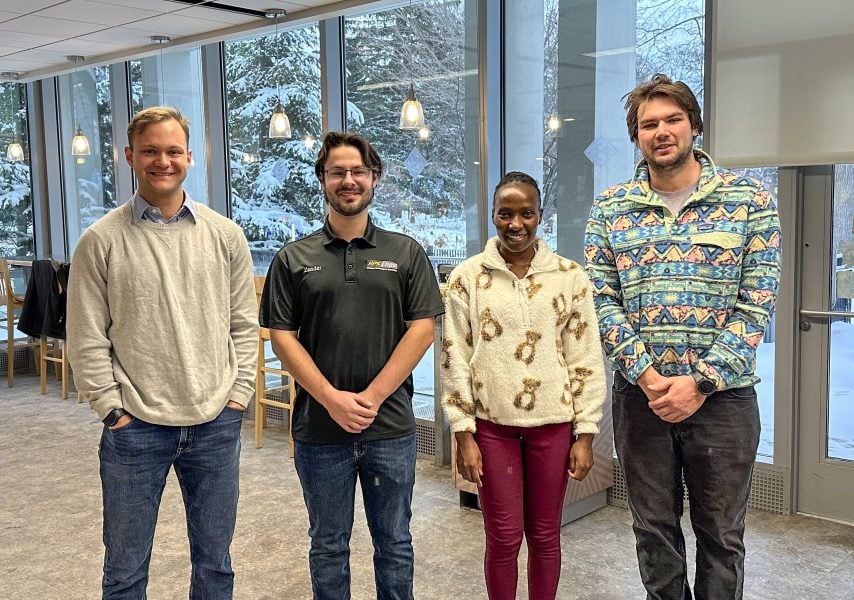
When it comes to recruiting talented doctoral candidates, Michigan Tech’s College of Engineering is starting with our own students!

When it comes to recruiting talented doctoral candidates, Michigan Tech’s College of Engineering is starting with our own students!
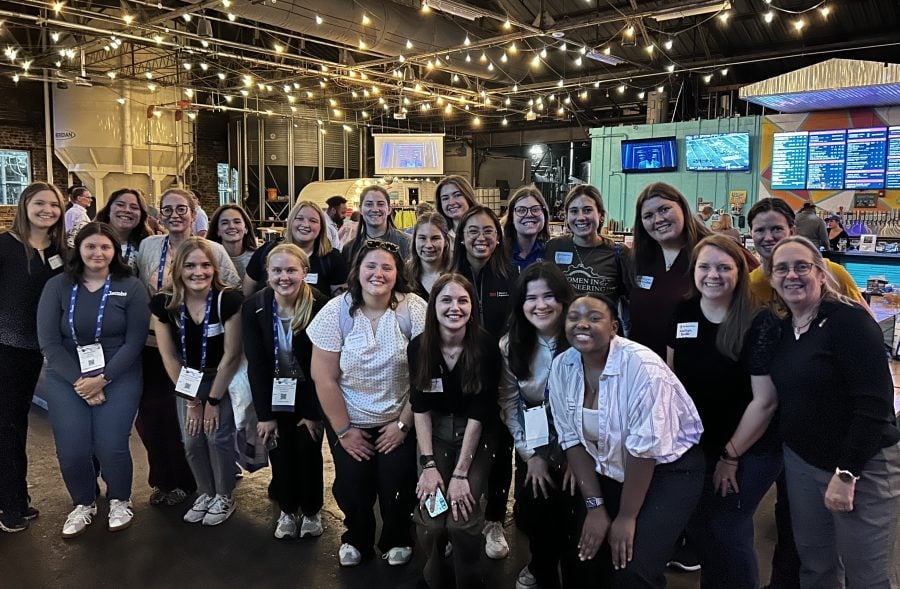
Society of Women Engineers (SWE) is celebrating 75 years of providing a robust network of advocates for any and all looking to support women engineers and their unique place and voice within the engineering and technology industry. At Michigan Tech, our award-winning SWE section is going above and beyond to help members connect with peers and industry around the world.
This October, Tech’s SWE section traveled with 17 students to WE25, the organization’s national conference in New Orleans, Louisiana. The annual conference is the world’s largest gathering dedicated to forwarding the progress of women in engineering and technology.
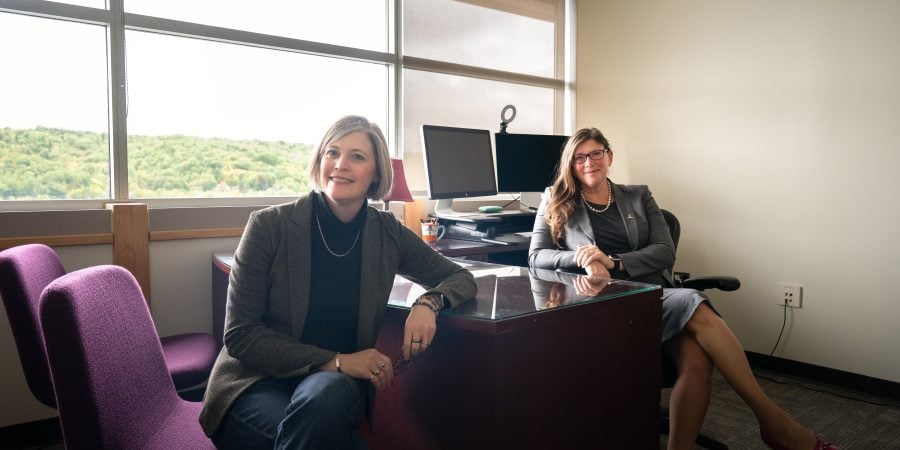
When Dean Michelle Scherer arrived at Michigan Tech’s College of Engineering at the start of the 2024-2025 academic year, she brought with her a new vision of engineering education excellence. Known for its hands-on, practical approach, the College of Engineering under her leadership would train collaborative and imaginative engineers from all backgrounds to develop, test, and build real solutions to meet the challenges of tomorrow.
This summer, Dean Scherer welcomed two new associate deans to the College’s administration who will work closely with her to deliver on that vision of world-class education, research, and leaders
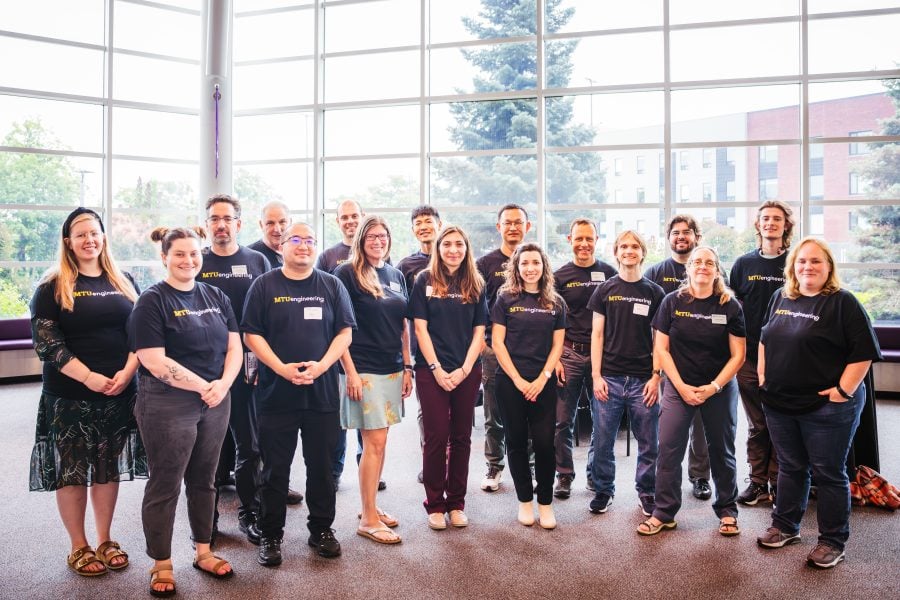
The Michigan Tech College of Engineering welcomes 13 new faculty members across six departments for the 2025-2026 academic year. These new researchers and educators bring a wealth of experience and expertise in fields including computational fluid dynamics, autonomous machines and vehicles, artificial intelligence, freshwater management, and more.
“Tomorrow needs every engineer and we need thoughtful, dedicated faculty to educate and inspire them,” said Michelle Scherer, dean of the College of Engineering. “I am thrilled to welcome this phenomenally talented group to help train the next generation of Husky engineers. Exciting things are ahead!”
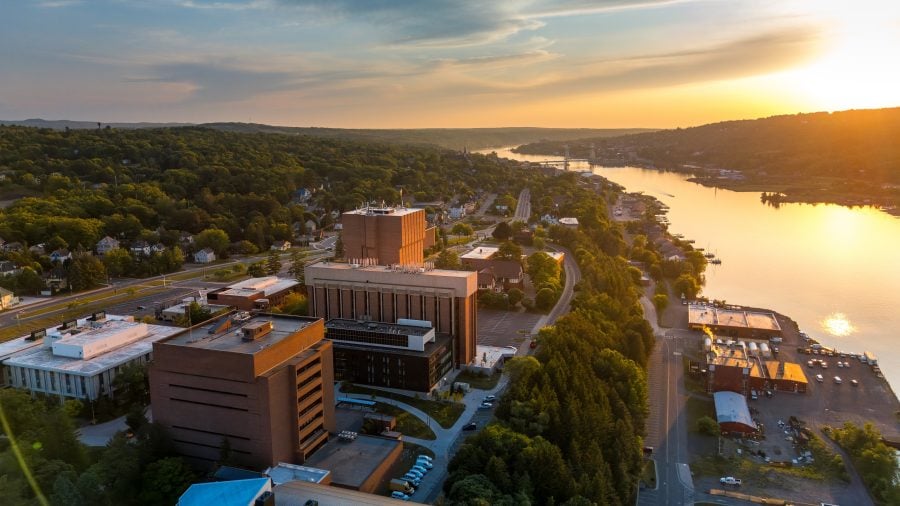
Amy E. Landis has been named associate dean of graduate and online education of the College of Engineering at Michigan Technological University, effective August 4.
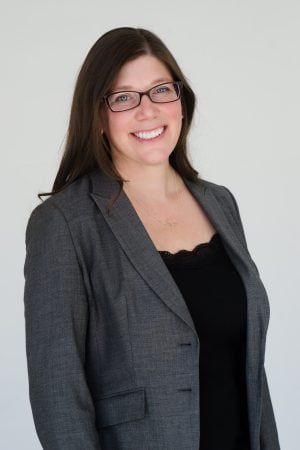
Landis brings 18 years of expertise in academic programming and educational excellence to this new role in the College. Prior to joining Tech, Landis had been a professor of civil and environmental engineering at the Colorado School of Mines since 2017. There, she served as the Presidential Faculty Fellow for Diversity, Inclusion, and Access and raised over $3.45 million for programming and scholarships. Landis, who holds a visiting professorship at the Santo Domingo Institute of Technology in the Dominican Republic, previously served as director of the Institute of Sustainability at Clemson University where she was the Thomas F. Hash ’69 Endowed Chair in Sustainable Development.
“The heart and soul of innovative research at Tech is our graduate students and I am thrilled Amy Landis is joining us in this new position focused on preparing our students for successful careers in industry, academia and the public sector,” said Michelle Scherer, dean of the College of Engineering. “Amy has dedicated her career to providing opportunities and research experiences for engineering students across the globe.”
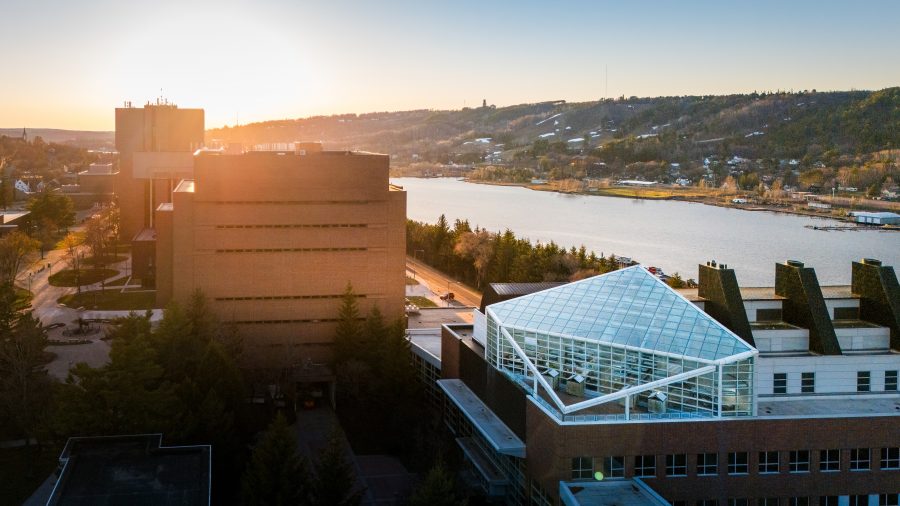
R. Andrew Swartz has been named chair of the Department of Civil, Environmental, and Geospatial Engineering (CEGE) at Michigan Tech’s College of Engineering, effective July 1. Swartz will lead the CEGE department, which supports more than 500 undergraduate students and 100 graduate students, for the 2025-2026 academic year.
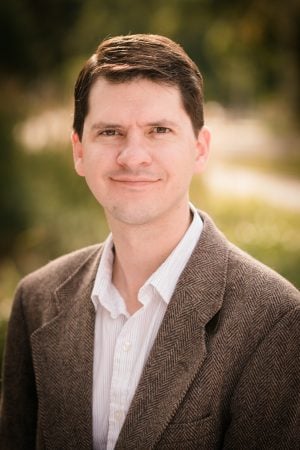
Swartz is an associate professor of civil, environmental, and geospatial engineering and currently serves as the CEGE associate chair of curriculum. He teaches courses on topics of steel design, structural timber design, continuous-system modeling, and advanced structural analysis. Swartz is also an affiliated associate professor of electrical and computer engineering. He serves as the faculty advisor for the student chapter of the American Society of Civil Engineers (ASCE) and the Student Steel Bridge Competition team.
“Andrew is an expert in developing sensors and computing for structural applications and has been instrumental in creating and delivering curriculum to prepare our students to tackle complex infrastructure challenges,” said Michelle Scherer, dean of the College of Engineering. “Andrew brings a strong background of leadership in structures research and engineering education, and I’m looking forward to working with him and CEGE to continue to lead the way in engineering a better world.”
An MTU alumnus, Swartz earned his BS in civil engineering before going on to receive his MS in civil engineering, MS in electrical engineering: systems, and PhD in civil engineering from the University of Michigan. His research interests include applications of sensors and computing for structural systems including load characterization, structural health monitoring, and structural control for civil infrastructure assets such as buildings, bridges, pipelines, wind turbines, roadways, and railroads.
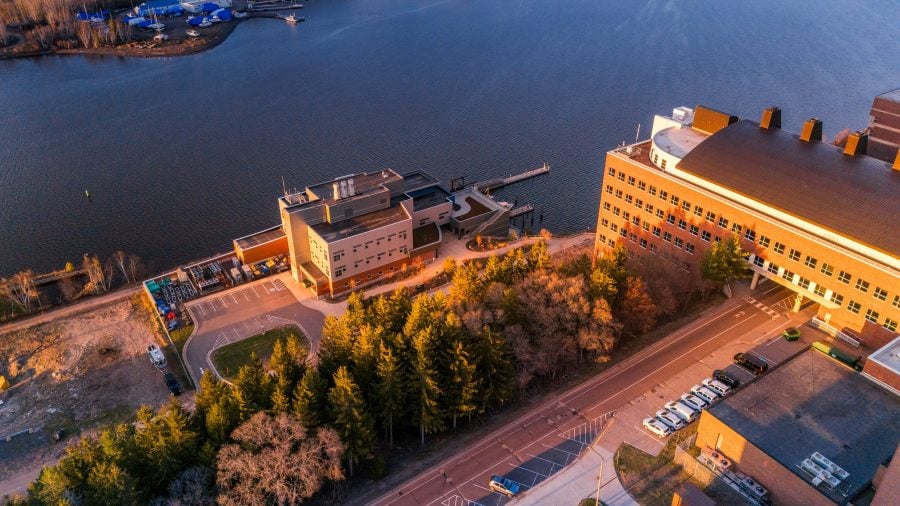
Audra Morse has been named the associate dean of academic affairs of the College of Engineering at Michigan Technological University, effective July 1.
Morse has served as chair of the Department of Civil, Environmental, and Geospatial Engineering (CEGE) since 2017 and previously served as interim dean of the College of Engineering for the 2023-2024 academic year. In her role as associate dean, Morse will support undergraduate curriculum, recruitment, and support across the college’s nine departments and further the college’s mission of delivering world-class education, leadership, and research.
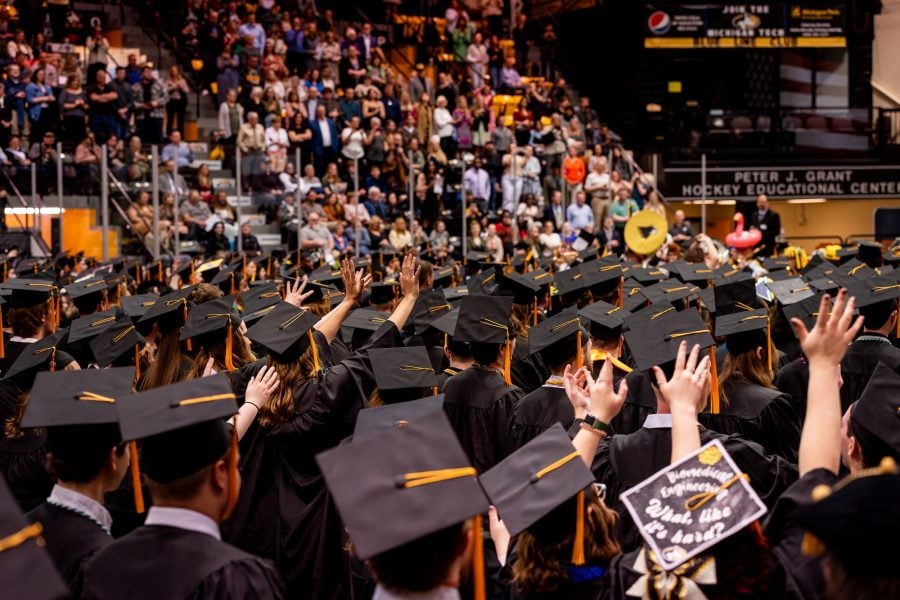
More than 600 College of Engineering students will take part in Michigan Technological University commencement ceremonies on Friday and Saturday. While their time on campus is coming to an end, they know they’ll be Huskies forever.
As they prepare for graduation, engineering students are reflecting on their time at Tech, sharing their dreams for the future, and offering advice to the next generation of Huskies.
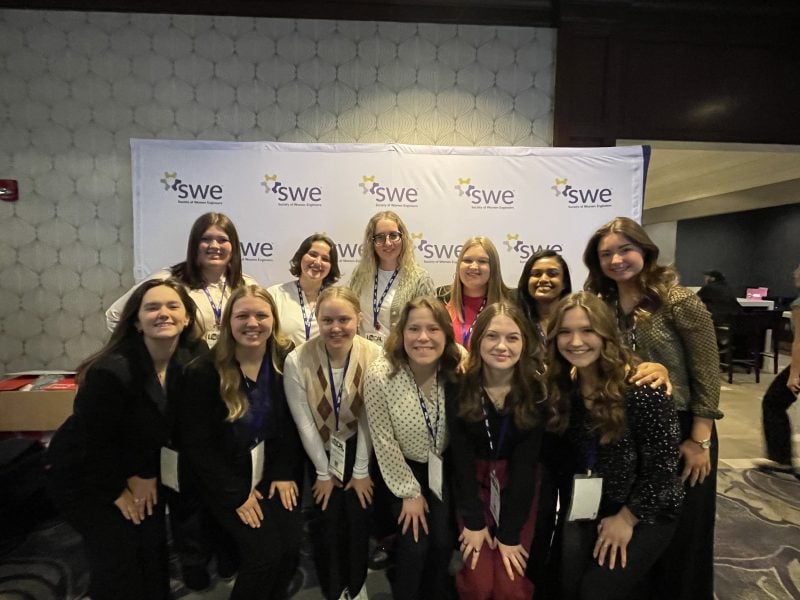
Michigan Tech’s section of the Society of Women Engineers (SWE) attended their WE Local 2025 conference in Milwaukee, Wisconsin in mid-March. Through the generous support of their corporate sponsors, SWE at Michigan Tech was able to send 12 students to attend professional development sessions, network with industry professionals and members of other SWE sections, and bond with their fellow Michigan Tech Huskies.

For over 15 years, Michigan Tech’s Rail Transportation Program (RTP) has been committed to developing tomorrow’s leaders in rail engineering. As part of the Michigan Tech Transportation Institute (MTTI) and Department of Civil, Environmental, and Geospatial Engineering (CEGE), RTP has served as a beacon of research, education, and innovation for rail enthusiasts from high school students to expert faculty and everyone in between.
Michigan Tech’s one-of-a-kind program was founded in 2007 by Pasi Lautala, then a recent Michigan Tech doctoral graduate, now long-time faculty member, who serves as director of both RTP and MTTI. Since its inception, the program’s goal has been three-fold: education, research, and outreach.